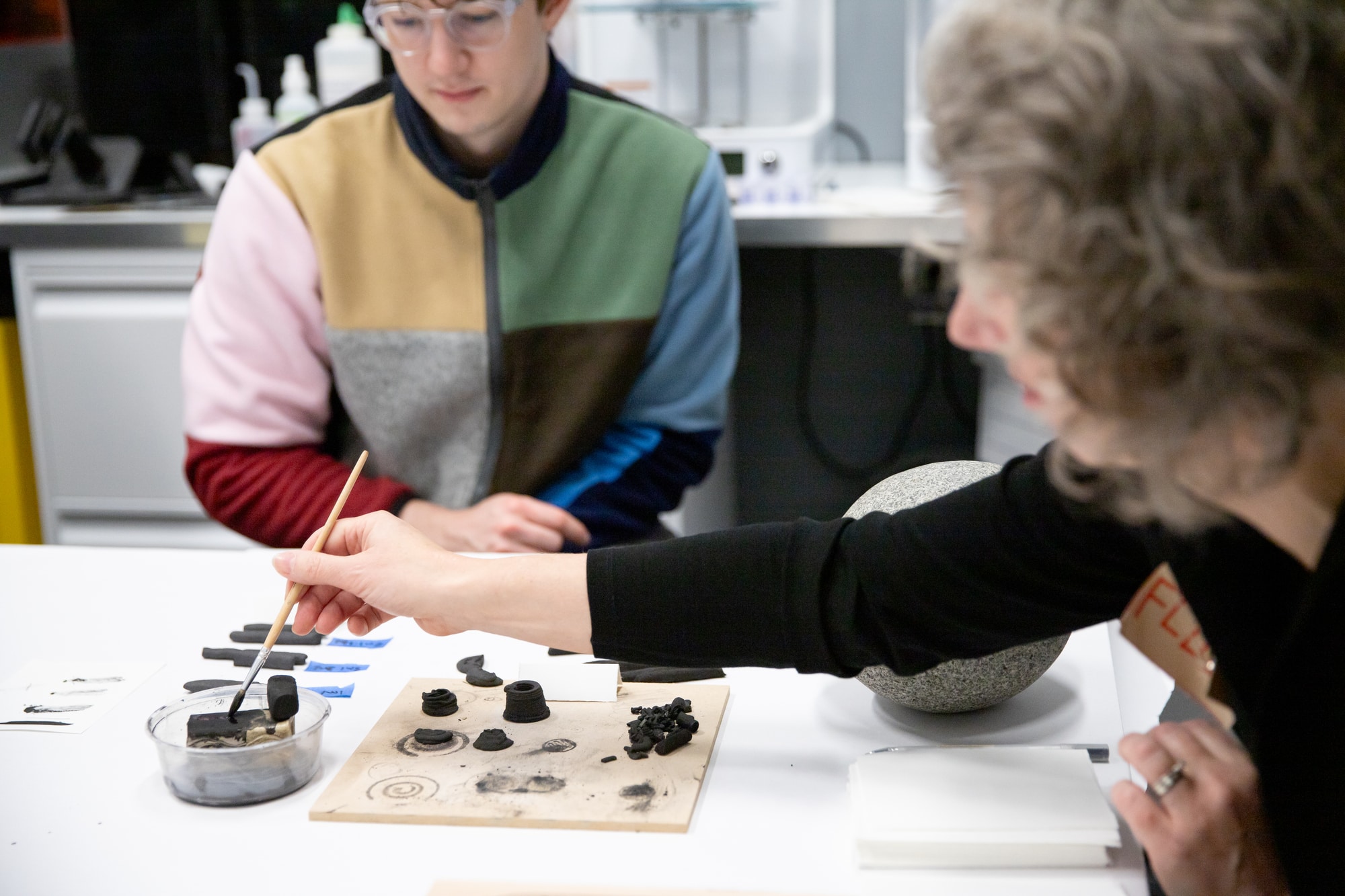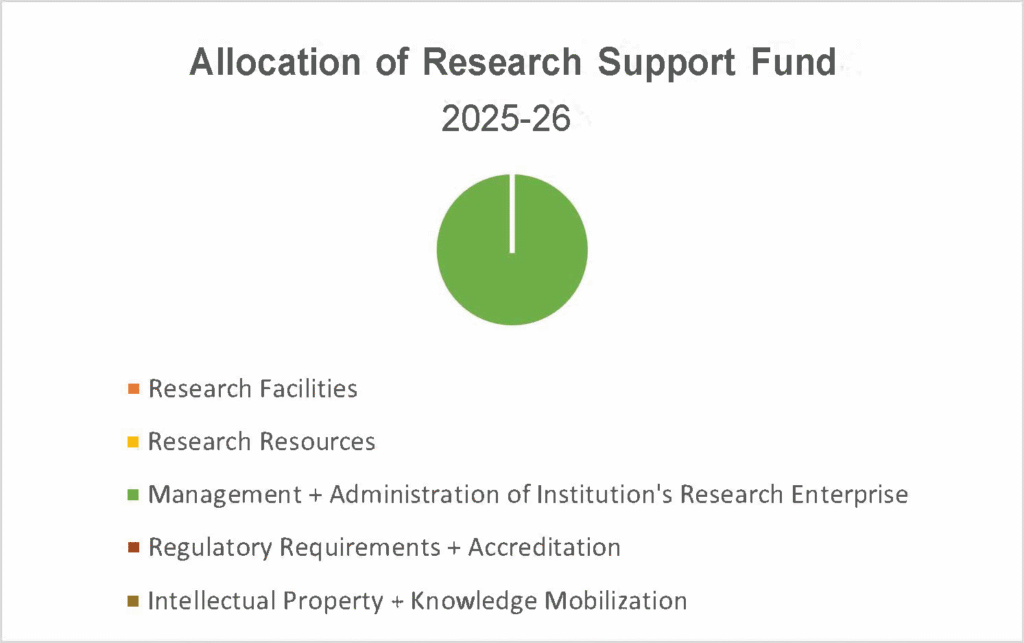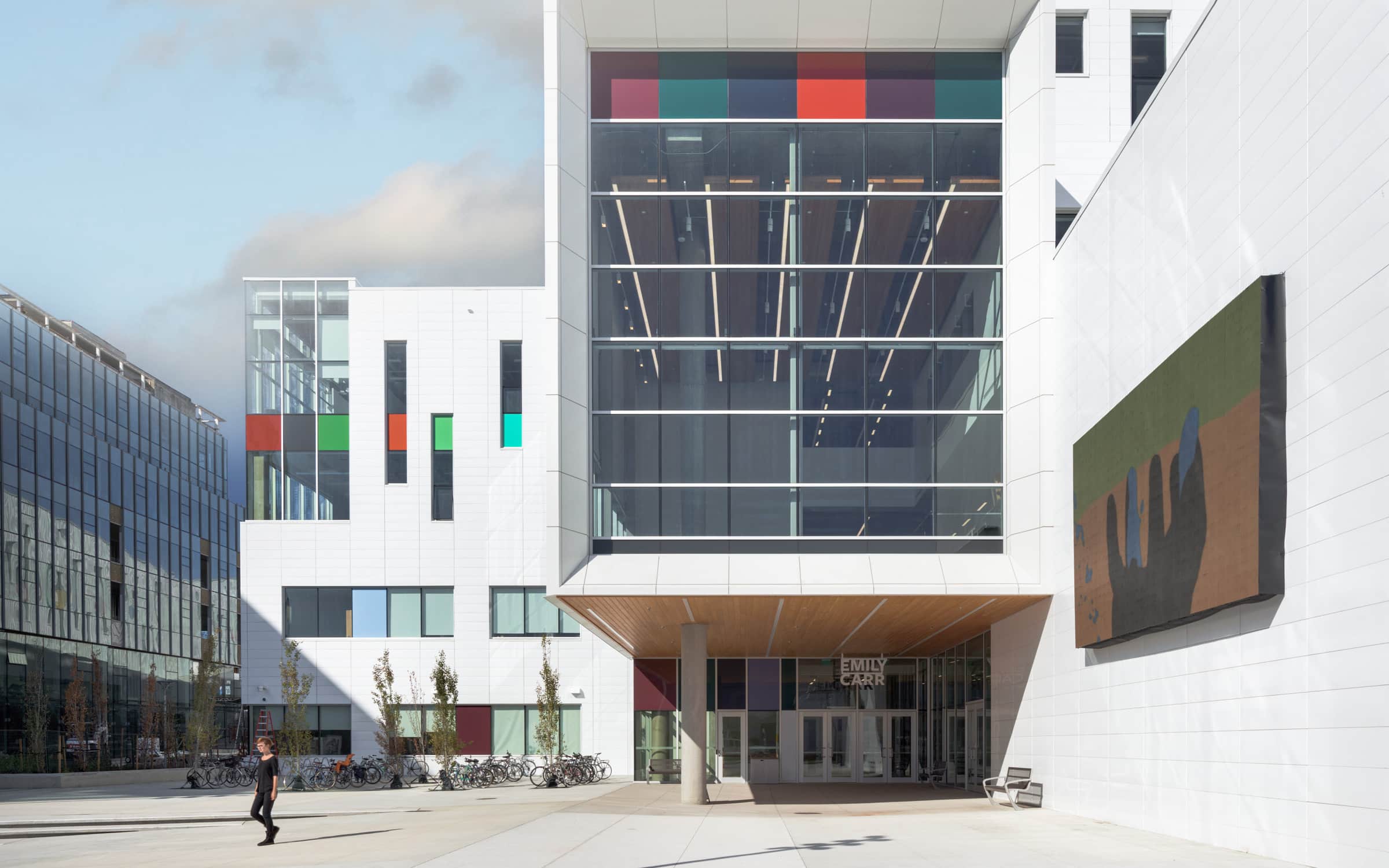Research Support Fund
The Research Support Fund helps Canadian universities cover the indirect, often hidden, costs of research — from maintaining labs and equipment to providing essential administrative and compliance support.
At Emily Carr University, these funds enhance our capacity to manage grants, support faculty, and foster a vibrant and sustainable research environment.

Indirect Costs of Research
Direct costs are the expenses tied directly to a specific project — such as materials and supplies, hiring research personnel, and travel for research or dissemination.
Indirect costs are the broader expenses a university incurs to support, manage, and house research activity. These include:
- Maintaining buildings, labs, and facilities (maintenance, utilities, cleaning)
- Housing, maintaining, and managing research equipment
- Support services such as library, IT, finance, and HR
- Legal costs for research agreements and partnerships
- Research administration and support from the Research + Industry Office (contracts, finance, ethics, grant development, etc.)
Indirect costs are incurred whether or not a funding application is successful. To help offset these expenses, all funded projects administered through the Research + Industry Office include a cost recovery contribution of 20% of the total project budget.
Exceptions:
- Funds from agencies that specify a verifiable alternate rate
- Funds from Tri-Council agencies (already supported by the Research Support Fund)
What is the Research Support Fund?
The Research Support Fund (RSF) is a federal program, created in 2003, that helps Canadian post-secondary institutions cover the indirect costs of research funded by the three federal granting agencies:
- Canadian Institutes of Health Research
- Natural Sciences and Engineering Research Council
- Social Sciences and Humanities Research Council
RSF grants can be used to:
- Maintain modern labs and equipment
- Provide access to current knowledge resources
- Support research management and administration
- Meet regulatory and ethical standards
- Transfer knowledge from academia to public, private, and non-profit sectors
RSF at Emily Carr University
Allocations are made annually based on Tri-Council funding. In 2025–26, Emily Carr received $150,326, which offsets the costs of research administration, including:
- Expense processing and compliance
- Internal and external financial reporting
- General pre- and post-award support
Please see this document for a summary of the last five year RSF allocation to Emily Carr University of Art + Design: 2024-25 Five Year Allocation.
The Research Support Funds have been instrumental in growing research at Emily Carr. Our ability to support Faculty in applying and managing their grant funds has increased the number of Faculty involved in research. More information on research at Emily Carr can be found at research.ecuad.ca.

